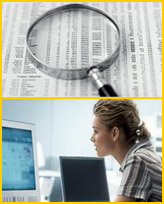Media ownership on agenda of UNESCO-supported roundtable in Albania
24-12-2009 (Tirana)

© Albanian Media Institute
“Newsroom-Based Mechanism and Self-Regulation Attempts in Albania” was the theme of the national roundtable organized in Tirana last month by UNESCO, in cooperation with the Albanian Media Institute and OSCE. The roundtable was attended by 40 participants, including editors, journalists, university lecturers, media experts and representatives of journalists’ associations.
The event was opened by Remzi Lani, Director of the Albanian Media Institute. Ilda Londo and Lufti Dervishi, Albanian media experts, delivered the speeches on media self-regulation and in-house mechanisms. The roundtable was also attended by two international speakers: Professor Robert Pinker, from the UK Press Complaint Commission, and Ognian Zlatev, UNESCO consultant and Director of the Media Development Center in Sofia (Bulgaria).
Specific attention was paid to the role of media owners in the media development in Albania. Participants underlined that this aspect of the Albanian media was indeed problematic as business interests usually prevailed upon public ones in the media agenda. The current crisis of values in the country’s media is triggered by the fact that both public and private media are influenced by the interests that are not public-oriented.
The need for a more ethical conduct of online media and the balance between defamation and ethics were other key issues raised at the roundtable. Discussions also focused on the necessary conditions for self-regulation, the relation between self-regulation and defamation, different self-regulatory mechanisms, imposition of sanctions and their viability. Some participants brought up emerging problems of media ethics in the wake of the rapid technological development and continuous change in the profession of reporter.
Professor Pinker, together with other speakers, stressed the importance of a self-regulation process in the context of Albania’s attempts to become a member of the European Union as it would greatly improve press freedom and human rights in general.
The Albanian roundtable was organized by UNESCO in the framework of its project, Alignment to International Standards in the Media Sector of South-East European Countries. Financed by the European Union, this project aims at encouraging, assisting and accelerating media reforms in the South-East European countries: Albania, Bosnia and Herzegovina, Croatia, Montenegro, Serbia, the former Yugoslav Republic of Macedonia, Turkey and Kosovo (under UNSCR1244).
Specific attention was paid to the role of media owners in the media development in Albania. Participants underlined that this aspect of the Albanian media was indeed problematic as business interests usually prevailed upon public ones in the media agenda. The current crisis of values in the country’s media is triggered by the fact that both public and private media are influenced by the interests that are not public-oriented.
The need for a more ethical conduct of online media and the balance between defamation and ethics were other key issues raised at the roundtable. Discussions also focused on the necessary conditions for self-regulation, the relation between self-regulation and defamation, different self-regulatory mechanisms, imposition of sanctions and their viability. Some participants brought up emerging problems of media ethics in the wake of the rapid technological development and continuous change in the profession of reporter.
Professor Pinker, together with other speakers, stressed the importance of a self-regulation process in the context of Albania’s attempts to become a member of the European Union as it would greatly improve press freedom and human rights in general.
The Albanian roundtable was organized by UNESCO in the framework of its project, Alignment to International Standards in the Media Sector of South-East European Countries. Financed by the European Union, this project aims at encouraging, assisting and accelerating media reforms in the South-East European countries: Albania, Bosnia and Herzegovina, Croatia, Montenegro, Serbia, the former Yugoslav Republic of Macedonia, Turkey and Kosovo (under UNSCR1244).
Related themes/countries
· Albania
· Professional Journalistic Standards and Code of Ethics
Share this story:
Contact information
- UNESCO
Source














